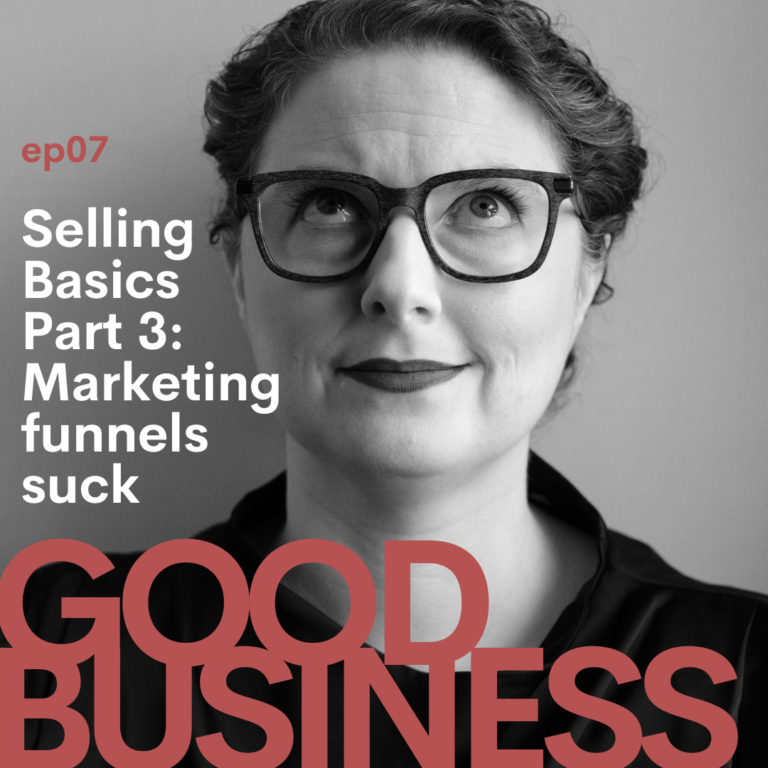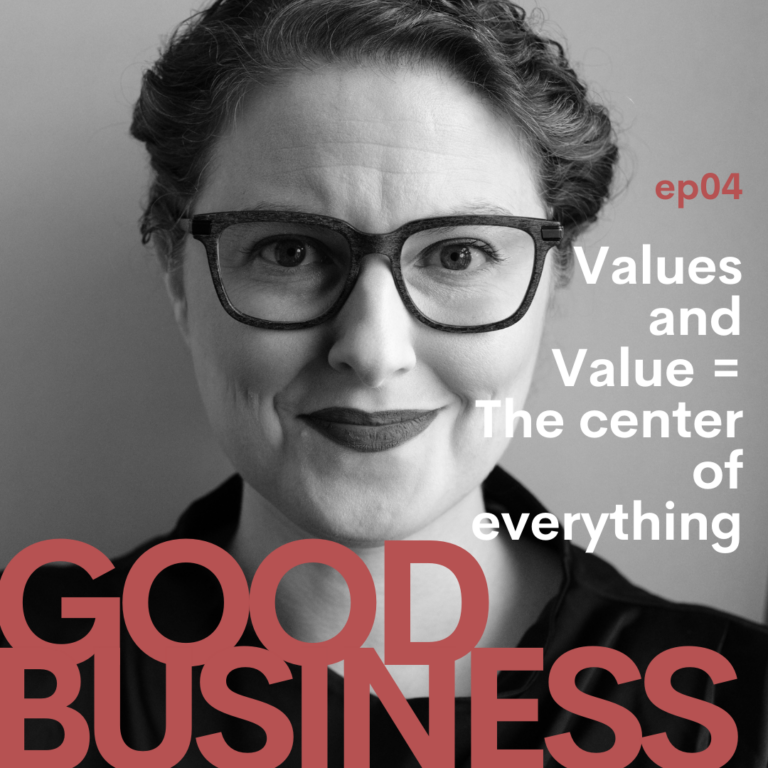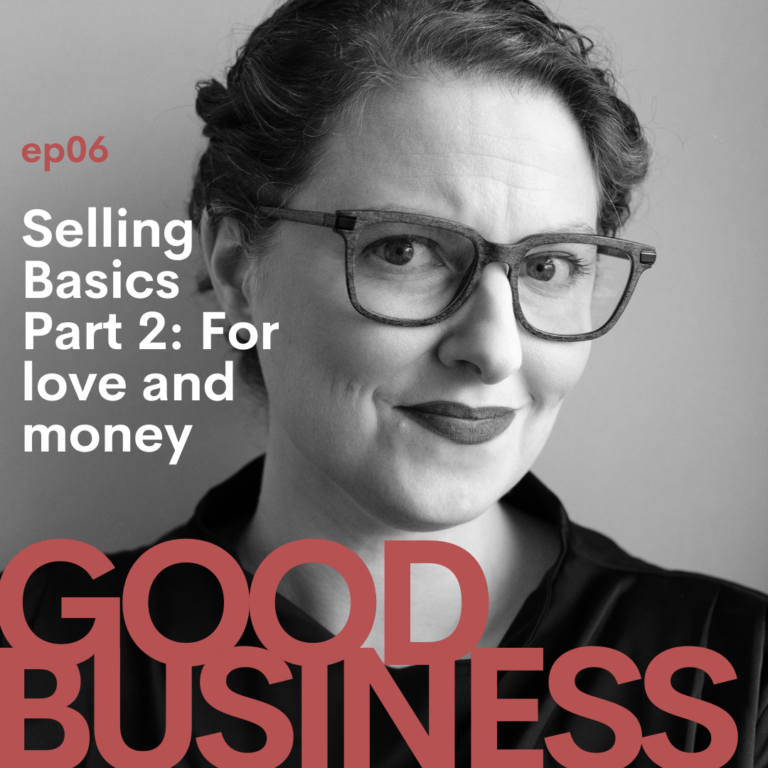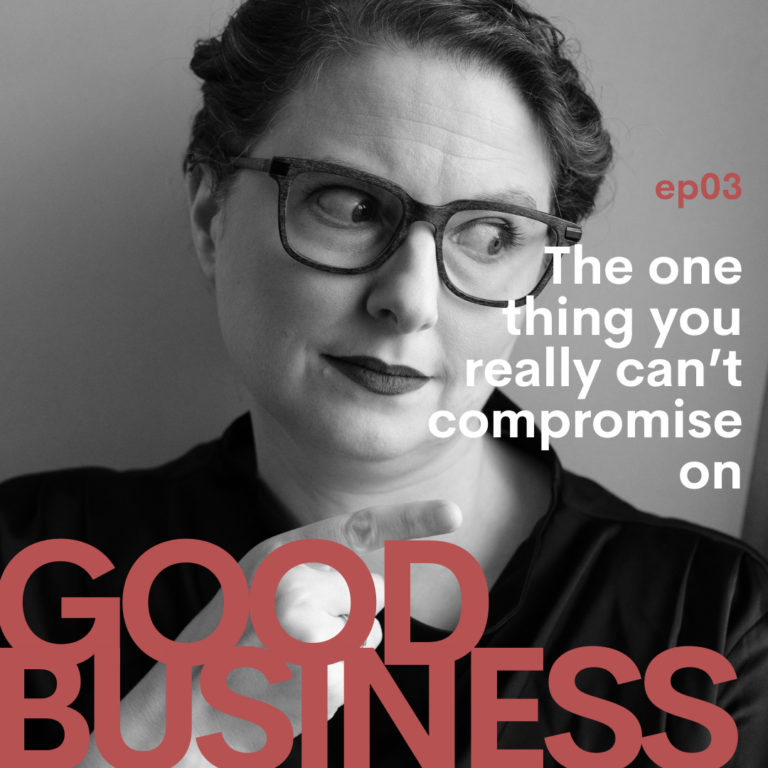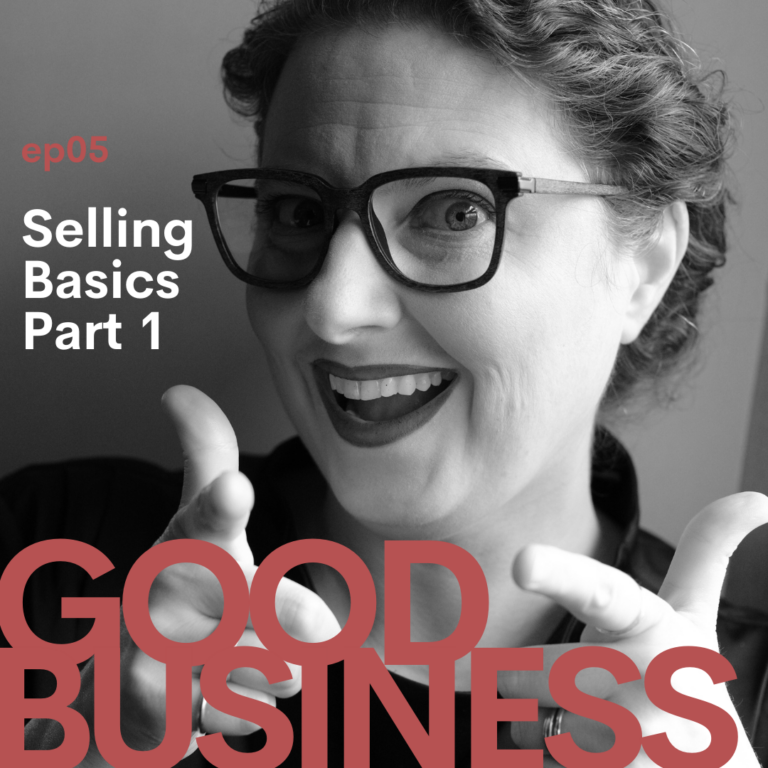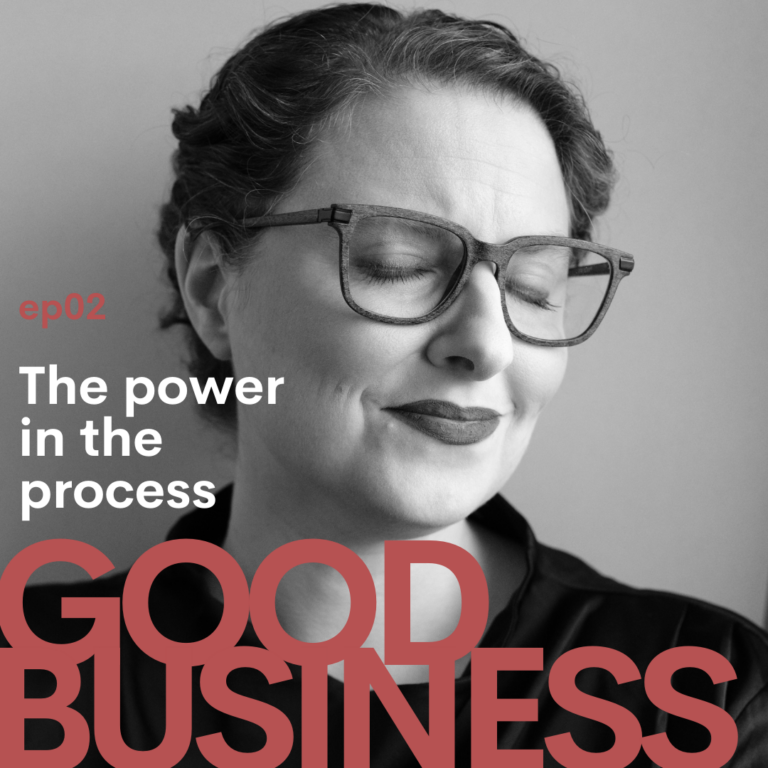Welcome back to Good Business. I’m your host, Illana Burk.
Today, we’re talking about decision-making. Specifically, how do you decide where to put your energy around self-promotion when resources feel limited and it feels like you need to be everywhere all at once?
A few days ago, I published a post about my experiences after three months on TikTok. For me, it was just an off-the-cuff recap of what I’ve learned so far. But the response was surprising. A whole bunch of people reached out in appreciation and curiosity. One of the people who messaged me was an internet buddy who I deeply respect. She is an inquisitive, intelligent, and humble leader who I am consistently impressed by.
My post about TikTok expressed some of my overall cynicism and disappointment with the platform overall. My friend asked me a bunch of really excellent questions and among them, she asked what my filter is for deciding where to put my promotional energy – before listing hers.
#1 on her list was: “Is it fun?”
It hit me hard.
Because I realized that that used to be my #1 too.
It went all the way back to a keynote talk I saw years ago from Bill McDonough at a huge sustainability conference in the Bay Area. Bill is one of the writers of Cradle to Cradle (a favorite book of mine) – and is a leader and a teacher in the world of sustainable commerce. His talk was about all of his super impressive projects for Ford Motor Company and China. He’s a man who, even 20 years ago, had already made a career out of being keenly aware of just how finite our time on this planet actually is. But what struck me was a joke he cracked at the very beginning of his talk.
As he lumbered up onto the stage, looking a little jetlagged, he opened with – what I can only assume – is his standard talk-opener. He talked about how his secretary tells all new people who show up at his office a word of caution.
She tells them, “If Bill just gets up and leaves, he’s not coming back. He has decided he isn’t having fun and has gone to find something that he’ll have more fun doing.” And then someone in the audience yelled, “WHOOPEE!!” And when everyone laughed and looked at the audience member, they yelled, “Just trying to keep it fun so Bill doesn’t wander off!”
Everyone laughed more. Bill laughed.
And his demeanor changed. His talk went from cool – but a little canned – to spontaneous and inspiring. He ignored his slides and talked about things he obviously just wanted to talk about.
And twenty years later, I’m telling that story for the umpteenth time.
Fun matters.
And a lot of us have forgotten that. I had forgotten that.
In the hustle and relentlessness of marketing and self-promotion, decision-making about what to do and where to do it can become a product of calculation and need and chasing desired outcomes.
Fun can get really really lost.
Which is why we all need our own compass of sorts. A filter that helps us decide what works for us and what doesn’t. Fun might not even be on YOUR list.
Decision-making can be based on all kinds of things – values, desires, experience, legacy, etc.. and depending on what area of your life you’re making decisions for, the influencing factors might be different. In my work as a coach and consultant, creating decision-making filters is one of my core functions for clients – because when you can make rock-solid, well-aligned decisions, you can not just grow, but grow in the right ways for YOU. And since the bulk of good leadership is based on sound decision-making, getting good at this is really important.
So you would think I would be good at this for myself. And I am – but I’m also just as susceptible to losing the thread on what’s most important to me as anyone. After all, circumstances change. Needs change. Business changes. And that means that our filters need to change too.
The key is to be proactive about recognizing the need for updates BEFORE responses to changing stimuli become reactions that aren’t based on anything but emotional impulse.
So here’s my refreshed list – these are the questions I ask myself when I’m evaluating a new place to put my attention and energy:
1. Is it fun?
2. Does it feel worth sacrificing time away from my kid?
3. Does it offer the opportunity to lead or participate in interesting, juicy conversations?
4. Do I look forward to spending time with the other people there?
If the answer is no to any of these questions, then the answer is no. Full stop.
We get what we choose, right?
So what does YOUR opportunity filter look like?
More Episodes
The Ethical Selling Part 3: Marketing Funnels Suck | GB07
Marketing Funnels. What they are (and aren’t). Why I think they’re a terrible way to structure a client relationship. And what to do instead. The idea today is to show you why and how to look deeper at the prevalent logic that you HAVE to do this to be successful. You don’t.
Values and Value: The Center of EVERYTHING | GB04
Your values affect your your deepest work, how you make decisions, how you operate externally from yourself. It’s how you move through the world. Your value is how other’s experience it. Today’s episode is a deep-dive primer on why understanding both is critical.
Selling Basics Part 2: For love and money | GB06
Today’s focus is on how to love selling by loving your clients (or potential clients) first. Loving the people you’re selling to is a HUGE part of making selling into something you adore. It’s not just an esoteric concept. It’s...
The one thing to never compromise on | GB03
Business is FULL of opportunities for compromise. Options. Bad advice. The kind that tells you it’s OK to sacrifice your values. And as business owners, we are often asked to bend, shift, stretch. Change what we KNOW to be true to fit “The Rules”. Today we explore the one thing to NEVER do this on.
Selling the right way: Part 1 | GB05
Selling is a conversation. A communication. It’s how you show yourself to your community. The confusion happens when we see people we like, look up to, and respect using sales tactics that belie their stated mission.
The Power in The Process | GB02
Process goes WAY beyond systems setup. Today, we talk about how identifying the ways in which your process is slowing your growth can be one of the most valuable exercises you can do to thrive and grow.

